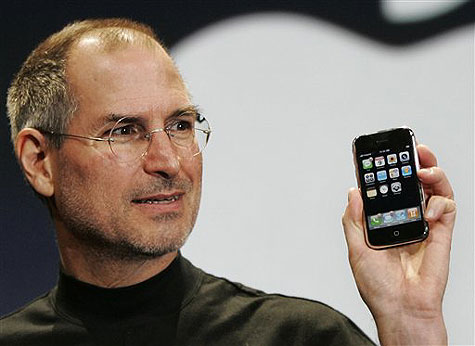 Apple Computer faces a crisis of confidence after yesterday's death of its visionary co-founder and long-serving CEO Steve Jobs.
Apple Computer faces a crisis of confidence after yesterday's death of its visionary co-founder and long-serving CEO Steve Jobs.
This is not the first time Apple has lost Jobs' insprirational influence.
After Jobs was ousted by "professional" management in the mid-80s, Apple lost its way over the next decade, delivering increasingly mediocre products and coming close to failure.
Meanwhile Jobs built successful businesses including animation trailblazer Pixar and Unix workstation specialist NeXT Inc - which laid the foundation for Apple's Mac OS X.
Jobs returned to Apple in 1997 as "interim CEO", the role he relinquished only a few weeks ago. During this "temporary" tenure, Jobs transformed Apple from also-ran to the world's most valuable technology company.
He was the inspirational force behind a simplification of Apple's product line to a series of stylish and spectacularly successful products
The iMac, the iPod and iTunes, the iPhone and the iPad not only transformed Apple, they revolutionized the music, mobile phone and computing industries.
The fact that I received the request for this story on my iPhone and I'm writing it on my iPad while in the car traveling to Melbourne demonstrates how much the vision of Steve Jobs has changed individual lives.
Apple's crisis of confidence relates to investor, customer and its own belief in its ability to continue innovating without this obsessively perfectionist leader.
The company has had plenty of time to prepare for this day. Since 2004, Jobs had survived pancreatic cancer, a liver transplant and several prolonged bouts of medical leave.
So the Cupertino-based company probably has several years of Jobs-inspired ideas in its pipeline: But the problem for Apple is not just the concept, it's the execution, something Job pursued with perfectionist zeal.
The challenge facing new CEO Tim Cook, who took Apple's reins officially on August 24, is not just to hold together an incredibly talented team: It is to maintain the brilliant shine of a company that is regarded as revolutionary rather than evolutionary.
The underwhelming welcome to this week's launch of the iPhone 4S does not augur well for his new regime.
Steve Jobs was the last hands-on CEO from the generation that created the personal computer revolution.
The world, not just Apple, is poorer for his passing.
This is the full version of a story by John Harris that was published by The Advertiser, in Adelaide, on Friday, October 7, 2011
If you want to check out some of the Steve Jobs' magic, watch his commencement address to Stamford University in 2005, in which he talks about adoption, being fired from Apple, "joining the dots" in your life and the topic of death (thanks to YouTube!
Related News
- Tablet just the medicine for people on the move What a difference a year makes! JOHN HARRIS looks at how the great technology fad of 2009, the netbook, has gone from must-have fashion to forgotten with the arrival of a new fab f...
- Wolf chases Google’s lunch Wolfram|Alpha has launched itself as a next-generation search engine that offers answers rather than just lists of websites. JOHN HARRIS kicks its tyres.A just-launched search engi...
- Laying claim in the name game You don't have to be a name-dropper to get tripped up by the name game JOHH HARRIS discovers.A couple of weeks ago, I was roped into the role of MC at my mate David Helllaby’s fune...
- Discovering the hidden secrets of Windows In a world enamoured by touchscreen convenience, JOHN HARRIS uncovers the convenience of keyboard shortcuts hidden in Windows. While using Windows today is as thrilling as chewing ...












